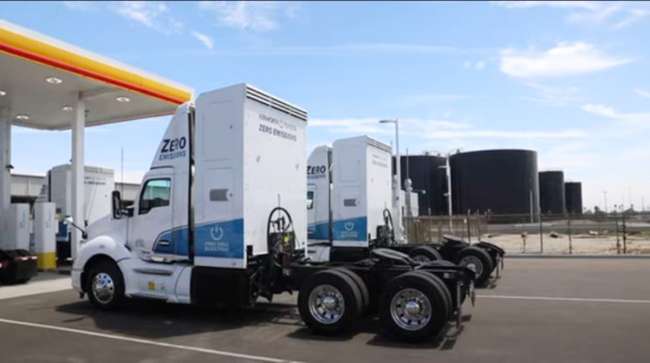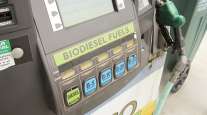EPA Awards $4.3B to Pollution Reduction Projects in 30 States

[Stay on top of transportation news: Get TTNews in your inbox.]
WASHINGTON — The Environmental Protection Agency is awarding $4.3 billion in grants to fund projects in 30 states to reduce climate pollution. The money will go to 25 projects targeting greenhouse gas emissions from transportation, electric power, commercial and residential buildings, industry, agriculture and waste and materials management.
The grants are paid for by the 2022 climate law approved by congressional Democrats. The law, officially known as the Inflation Reduction Act, includes nearly $400 billion in spending and tax credits to accelerate the expansion of clean energy such as wind and solar power, speeding the nation’s transition away from the oil, coal and natural gas that largely cause climate change.
The latest round of grants includes $396 million to the state of Pennsylvania to reduce industrial greenhouse gas emissions from cement, asphalt and other material. EPA Administrator Michael Regan will join Pennsylvania Gov. Josh Shapiro in Pittsburgh on July 22 to announce grant recipients in his state — a political battleground in the 2024 election — and across the nation.
Senior EPA leaders also will join Sen. Alex Padilla (D-Calif.) on July 22 to announce nearly $500 million for transportation and freight decarbonization at the ports of Los Angeles and Long Beach. The grants will provide incentives for electric charging equipment, zero-emission freight vehicles and conversion of cargo handling equipment to lower emissions.
📣 Congratulations to the selected applicants! We've selected 25 applicants to receive over $4.3 billion in grants to carry out community-driven solutions that tackle the climate crisis, reduce air pollution, and advance environmental justice.
🔗https://t.co/TNNWKPFCDW pic.twitter.com/Gd6DJ260Od — U.S. EPA (@EPA) July 22, 2024
“President Biden understands that America needs a strong EPA,’’ Regan told reporters July 19, noting the Biden administration “has made the largest climate investment in history, providing billions of dollars to state, local and tribal governments to tackle climate change with the urgency it demands.’’
The new grants “will help implement community-driven solutions that reduce air pollution, advance environmental justice and help accelerate America’s clean energy transition,’’ Regan said.
Shapiro, a Democrat who has been mentioned as a possible vice presidential pick now that Biden has stepped down from the presidential race, said his administration has taken action to address climate change while continuing to create energy jobs and expand the economy.
Jeff Loftus of FMCSA joins TT’s Seth Clevenger to discuss the current outlook on ADAS technology and how it will affect the industry at large. Tune in above or by going to RoadSigns.ttnews.com.
The grant being announced July 22 “is one of the largest federal grants Pennsylvania has ever received,’’ Shapiro said. The state will work with RISE PA, a new initiative aimed at reducing industrial sector emissions in Pennsylvania.
The Nebraska Department of Environment and Energy will receive $307 million to boost “climate-smart” agriculture and reduce agricultural waste from livestock, officials said. The grant also will fund projects to improve energy efficiency in commercial and industrial facilities and low-income households, as well as deploy solar panels and electrify irrigation wells.
Mayor Leirion Gaylor Baird of Lincoln, Neb., said the grant will enhance energy efficiency of homes and commercial buildings in her city. A city analysis indicates that investing in energy efficiency and electrification could reduce Lincoln’s emissions by 77% by 2050, Baird said on a White House call July 19.
The grant also will ensure Lincoln residents have “equitable access to the clean energy transition’’ by providing assistance to low-income residents, she said.
Want more news? Listen to today's daily briefing above or go here for more info
Other grants include nearly $250 million to boost electric vehicle infrastructure along Interstate 95 from Maryland to Connecticut. The project will provide charging infrastructure for commercial zero-emission vehicles and provide technical assistance for workforce development along the I-95 corridor, one of the most heavily traveled in the nation.
Connecticut, Massachusetts, Rhode Island, New Hampshire and Maine will get a total of $450 million to accelerate adoption of cold-climate heat pumps and water heaters.
Michigan will get $129 million to accelerate the siting, zoning and permitting of renewable energy. The grants will help Democratic Gov. Gretchen Whitmer, another potential vice presidential choice, achieve a goal of 60% renewable energy by 2035.





